Department Profile
The Department of English with the luminous history of 50 years is an icon of the golden legacy of SFRC. This milestone has been achieved by the collective contribution of each member of the department who with steely determination realizes the noble objective of shaping young women into all-round personalities. The Department offers two streams of UG, (Regular and Self-Financed), PG and M.Phil programmes and Business English Certification Programme and a Certificate Course in Vocational English which foster creativity and enhance employability potentials through effective communication skills in English. The Department of English pursues the herculean task of grooming the students with updated curriculum to match the demands of the twenty first century and mentoring them with moral values and principles to confront the challenges in the society.
Vision:
- To inculcate creative sensibility and to enhance employability potentials through effective communication skills in English.
Mission:
- To Impart aesthetic appreciation through Literature
- hone communicative competence
- foster creative thinking
- strive towards academic excellence
- B.A English
- M.A. English
- MPhil English
- Ph.D English
- Advanced Diploma in Functional English
- Certificate Programme in Vocational English
- Certificate Programme in Cultural Studies
| Name of the Programme | B.A English |
| Duration | Three years |
| Intake | 65 |
| Eligibility | Higher Secondary |
| Name of the Programme | M.A. English |
| Duration | Two years |
| Intake | 40 |
| Eligibility | Any UG degree |
| Name of the Programme | MPhil English |
| Duration | One year |
| Intake | 20 |
| Eligibility | Master Degree in English |
| Name of the Programme | Ph.D English |
| Duration | Two Years & above |
| Intake | 20 |
| Eligibility | M.Phil English Degree approved by any University |
| Name of the Programme | Advanced Diploma in Functional English |
| Duration | 90 hours |
| Intake | 60 |
| Eligibility | Students from all Discipline. |
| Name of the Programme | Certificate Programme in Vocational English |
| Duration | 8 hours |
| Intake | 60 |
| Eligibility | Students from all Discipline. |
| Name of the Programme | Certificate Programme in Cultural Studies |
| Duration | 8 hours |
| Intake | 60 |
| Eligibility | Students from all Discipline. |
PLOs -PSOs- PEOs
Department of English
SYLLABUS 2023
Programme Learning Outcomes (PLO):
PLO1: Disciplinary knowledge
Apply the knowledge of Arts, Science and Humanities to address fundamental and complex questions appropriate to their programmes.
PLO2: Critical thinking, Problem solving and Analytical reasoning
Make use of appropriate knowledge and skills to identify, formulate, analyze and solve problems in order to reach substantiated conclusions.
PLO3: Research related skills and scientific reasoning
Critically analyze research processes, products and practices with a view of strategic use of data in their field.
PLO4: Communication skills and Digital literacy
Demonstrate skills in oral and written communication and make use of ICT in various learning ambience.
PLO5: Team work and Leadership quality
Interact productively with people from diverse backgrounds as both leaders/mentors and team members with integrity and professionalism.
PLO6: Multicultural competence with Moral and ethical awareness
Defend the society against gender and environmental issues with moral and ethical awareness.
PLO7: Self-directed and Life-long learning
Formulate their own educational needs in a changing world in ways sufficient to maintain their competence and to allow them to contribute to the advancement of knowledge.
B.A. English
Programme Educational Objectives (PEOs):
The Graduates will be prepared to
PEO1: demonstrate both the artistry and utility of English language through the study of literature and other contemporary forms of culture which foreground higher education and also provide job opportunities
PEO2: build the critical faculties necessary in an academic environment and improve the nuances of writing skill for preparing scholarly articles, imbibing ethical standards in gathering and synthesizing resources
PEO3: discover their potentials and demonstrate their competence in Standard English Grammar, proficiency in speaking and writing which will boost their prospects in entrepreneurships and self- employment
Programme Specific Outcomes (PSO):
By the completion of the UG ENGLISH programme, the learners will be able to
PSO1: apply the knowledge of Arts, Science and Humanities to address fundamental and complex questions appropriate to their programmes.
PSO2: critically analyze research processes, products and practices with a view of strategic use of data in their field.
PSO3: demonstrate skills in oral and written communication and make use of ICT in various learning ambience.
M.A. English
Programme Educational Objectives (PEOs):
The Graduates will be prepared to
PEO1: demonstrate the mastery of the discipline by engaging in the recent approaches to literary studies that are necessitated to take up professions in the fields of Translation, English Language Teaching and freelance writing.
PEO2: develop research with innovative ideas in recent trends complying with ethical values for personal and professional growth
PEO3: strengthen their potential for employability and shape them into full-fledged professionals
Programme Specific Outcomes (PSO):
By the completion of the PG programme, the learners will be able to
PSO1: demonstrate thoroughness in literature, critical theories and research methodology
PSO2: facilitate a high level of integrity in a multicultural realm for a healthy competitive society
PSO3: participate in lifelong education to keep in pace with the fast-growing trends in the upcoming areas of literature
SYLLABUS 2020
B.A. English
Programme Outcomes (PO):
Programme Outcomes are narrower statements that describe what students are expected to know and be able to do upon the graduation. These relate to the skills, knowledge and behaviour that students acquire in their study through the programmes.
PO1: Disciplinary knowledge
Apply the knowledge of Arts, Science and Humanities to address fundamental and complex questions appropriate to their programmes.
PO2: Critical thinking, Problem solving and Analytical reasoning
Make use of appropriate knowledge and skills to identify, formulate, analyze and solve problems in order to reach substantiated conclusions.
PO3: Research related skills and scientific reasoning
Critically analyze research processes, products and practices with a view of strategic use of data in their field.
PO4: Communication skills and Digital literacy
Demonstrate skills in oral and written communication and make use of ICT in various learning ambience.
PO5: Team work and Leadership quality
Interact productively with people from diverse backgrounds as both leaders/mentors and team members with integrity and professionalism.
PO6: Multicultural competence with Moral and ethical awareness
Defend the society against gender and environmental issues with moral and ethical awareness.
PO7: Self-directed and Life-long learning
Formulate their own educational needs in a changing world in ways sufficient to maintain their competence and to allow them to contribute to the advancement of knowledge.
Programme Specific Outcomes (PSO):
Programme Specific Outcomes denote what the students should be able to do at the time of graduation. They are programme specific. It is mandatory that each PO should be mapped to the respective PSO specified in the programme in order. By the completion of the BA English programme, the learners will be able to
PSO1: Apply the knowledge of Arts, Science and Humanities to address fundamental and complex questions appropriate to their programmes.
PSO2: Make use of appropriate knowledge and skills to identify, formulate, analyze and solve problems in order to reach substantiated conclusions.
PSO3: Critically analyze research processes, products and practices with a view of strategic use of data in their field.
PSO4: Demonstrate skills in oral and written communication and make use of ICT in various learning ambience.
PSO5: Interact productively with people from diverse backgrounds as both leaders/mentors and team members with integrity and professionalism.
PSO6: Defend the society against gender and environmental issues with moral and ethical awareness.
PSO7: Formulate their own educational needs in a changing world in ways sufficient to maintain their competence and to allow them to contribute to the advancement of knowledge.
Programme Educational Objectives (PEOs):
PEOs are broad statements that describe the career and professional achievements that the programme is preparing the graduates to achieve within the first few years after graduation. PEOs should be consistent with the mission of the Institution. PEO’s can be measured by a PO-PEO matrix. The PEO’s should evolve through constant feedback from alumnae, students, industry, management etc. It is mandatory that each PEO should be mapped to atleast one of the POs. The Graduates will
PEO1: demonstrate both the artistry and utility of English language through the study of literature and other contemporary forms of culture which foreground higher education and also provide job opportunities.
PEO2: build the critical faculties necessary in an academic environment and improve the nuances of writing skill for preparing scholarly articles, imbibing ethical standards in gathering and synthesizing resources.
PEO3: discover their potentials and demonstrate their competence in Standard English Grammar, proficiency in speaking and writing which will boost their prospects in entrepreneurships and self employment.
M.A. English
Programme Outcomes (PO):
Programme Outcomes are narrower statements that describe what students are expected to know and be able to do upon the graduation. These relate to the skills, knowledge and behaviour that students acquire in their study through the programmes.
PO1: Disciplinary knowledge
Apply the knowledge of Arts, Science and Humanities to address fundamental and complex questions appropriate to their programmes.
PO2: Critical thinking, Problem solving and Analytical reasoning
Make use of appropriate knowledge and skills to identify, formulate, analyze and solve problems in order to reach substantiated conclusions.
PO3: Research related skills and scientific reasoning
Critically analyze research processes, products and practices with a view of strategic use of data in their field.
PO4: Communication skills and Digital literacy
Demonstrate skills in oral and written communication and make use of ICT in various learning ambience.
PO5: Team work and Leadership quality
Interact productively with people from diverse backgrounds as both leaders/mentors and team members with integrity and professionalism.
PO6: Multicultural competence with Moral and ethical awareness
Defend the society against gender and environmental issues with moral and ethical awareness.
PO7: Self-directed and Life-long learning
Formulate their own educational needs in a changing world in ways sufficient to maintain their competence and to allow them to contribute to the advancement of knowledge.
Programme Specific Outcomes (PSO):
Programme Specific Outcomes denote what the students should be able to do at the time of graduation. They are programme specific. It is mandatory that each PO should be mapped to the respective PSO specified in the programme in order. By the completion of the M.A. English programme, the learners will be able to
PSO1: demonstrate thoroughness in literature, critical theories and research methodology.
PSO2: apply knowledge required for argumentative skills that enable them to defend interpretations and critically analyse literary texts.
PSO3: evaluate and analyse the available resources for researching scholarly topics in the specific area of study.
PSO4: impart language skills and utilize the technological developments and modern gadgets to enhance communicative skills and gather research materials.
PSO5: develop oratorical skills, face interviews, interact in groups, participate in debates with combined efforts of the teammates culminating leadership qualities.
PSO6: facilitate a high level of integrity in a multicultural realm for a healthy competitive society.
PSO7: participate in lifelong education to keep in pace with the fast growing trends in the upcoming areas of literature.
Programme Educational Objectives (PEOs):
PEOs are broad statements that describe the career and professional achievements that the programme is preparing the graduates to achieve within the first few years after graduation. PEOs should be consistent with the mission of the Institution. PEO’s can be measured by a PO-PEO matrix. The PEO’s should evolve through constant feedback from alumnae, students, industry, management etc,. It is mandatory that each PEO should be mapped to at least one of the POs. The Graduates will
PEO1: demonstrate the mastery of the discipline by engaging in the recent approaches to literary studies that are necessitated to take up a profession in the fields of Journalism, Translation, English Language Teaching or to become a researcher.
PEO2: develop research with innovative ideas in recent trends complying with ethical values for personal and professional growth.
PEO3: strengthen their potentials and identify the progressive and emerging trends in the areas of literature in order to become a successful entrepreneur.
M.Phil. English
PO:Programme Outcomes (PO):
Programme Outcomes are narrower statements that describe what students are expected to know and be able to do upon the graduation. These relate to the skills, knowledge and behaviour that students acquire in their study through the programmes.
PO1: Disciplinary knowledge
Apply the knowledge of Arts, Science and Humanities to address fundamental and complex questions appropriate to their programmes.
PO2: Critical thinking, Problem solving and Analytical reasoning
Make use of appropriate knowledge and skills to identify, formulate, analyze and solve problems in order to reach substantiated conclusions.
PO3: Research related skills and scientific reasoning
Critically analyze research processes, products and practices with a view of strategic use of data in their field.
PO4: Communication skills and Digital literacy
Demonstrate skills in oral and written communication and make use of ICT in various learning ambience.
PO5: Team work and Leadership quality
Interact productively with people from diverse backgrounds as both leaders/mentors and team members with integrity and professionalism.
PO6: Multicultural competence with Moral and ethical awareness
Defend the society against gender and environmental issues with moral and ethical awareness.
PO7: Self-directed and Life-long learning
Formulate their own educational needs in a changing world in ways sufficient to maintain their competence and to allow them to contribute to the advancement of knowledge.
Programme Specific Outcomes (PSO):
Programme Specific Outcomes denote what the students should be able to do at the time of graduation. They are programme specific. It is mandatory that each PO should be mapped to the respective PSO specified in the programme in order. By the completion of the M.A. English programme, the learners will be able to
PSO1: demonstrate thoroughness in literature, critical theories and research methodology.
PSO2: apply knowledge required for argumentative skills that enable them to defend interpretations and critically analyse literary texts.
PSO3: evaluate and analyse the available resources for researching scholarly topics in the specific area of study.
PSO4: impart language skills and utilize the technological developments and modern gadgets to enhance communicative skills and gather research materials.
PSO5: develop oratorical skills, face interviews, interact in groups, participate in debates with combined efforts of the teammates culminating leadership qualities.
PSO6: facilitate a high level of integrity in a multicultural realm for a healthy competitive society.
PSO7: participate in lifelong education to keep in pace with the fast growing trends in the upcoming areas of literature.
Programme Educational Objectives (PEOs):
PEOs are broad statements that describe the career and professional achievements that the programme is preparing the graduates to achieve within the first few years after graduation. PEOs should be consistent with the mission of the Institution. PEO’s can be measured by a PO-PEO matrix. The PEO’s should evolve through constant feedback from alumnae, students, industry, management etc,. It is mandatory that each PEO should be mapped to at least one of the POs. The Graduates will
PEO1: demonstrate the mastery of the discipline by engaging in the recent approaches to literary studies that are necessitated to take up a profession in the fields of Journalism, Translation, English Language Teaching or to become a researcher.
PEO2: develop research with innovative ideas in recent trends complying with ethical values for personal and professional growth.
PEO3: strengthen their potentials and identify the progressive and emerging trends in the areas of literature in order to become a successful entrepreneur.
Faculty Details
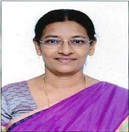
Dr. K. Muthamil Selvi
MA.,M.Phil., B.Ed., Ph.D
Associate Professor & Head
E-Mail muthamilselvi-eng@sfrcollege.edu.in Area of Specialization Indian Writing in English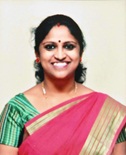
Dr. J.Sobhana Devi
MA.M.Phil., DDP., Ph.D
Associate Professor
E-Mail sobhanadevi-eng@sfrcollege.edu.in Area of Specialization Comparative Literature (Indian & Canadian)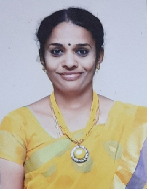
Dr. B.Siva Priya
M.A., M.Phil., Ph.D.,M.A(Hindi)
Associate Professor
E-Mail sivapriya-eng@sfrcollege.edu.in Area of Specialization Postcolonial Literature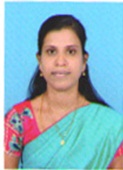
Dr.M.Sathya
M.A.,M.Phil.,Ph.D.,
Associate Professor
E-Mail sathya-eng@sfrcollege.edu.in Area of Specialization Indian Writing in English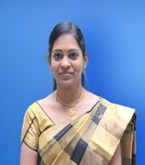
Dr. P. Prasanna Devi
M.A., M.Phil., Ph.D
Assistant Professor
E-Mail prasannadevi-eng@sfrcollege.edu.in Area of Specialization Indian Writing in English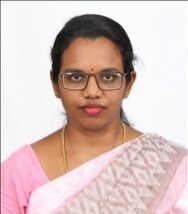
Mrs.V.Lalithambigai
MA.,MPhil., NET
Assistant Professor
E-Mail lalithambigai-eng@sfrcollege.edu.in Area of Specialization Cultural Studies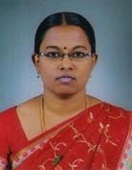
Dr. A. Padma Priya
M.A., M.Phil., Ph.D
Assistant Professor
E-Mail padmapriya-eng@sfrcollege.edu.in Area of Specialization Young Adult Literature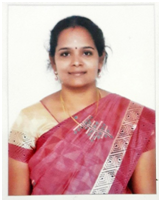
Dr. V.S.Shakila
M.A., B.Ed., Ph.D.,
Assistant Professor
E-Mail shakila-eng@sfrcollege.edu.in Area of Specialization Indian Writing in English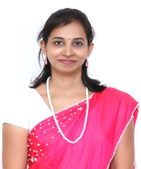
Dr. S.Sobana
MA., MPhil., SET., Ph.D.
Assistant Professor
E-Mail sobana-eng@sfrcollege.edu.in Area of Specialization Feminist Writing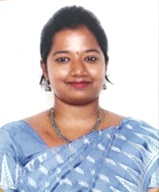
Dr. V.C.Priyadharshini
MA.,MPhil.,UGC-NET.,PhD.
Assistant Professor
E-Mail priyadharshini-eng@sfrcollege.edu.in Area of Specialization Post-colonial Literature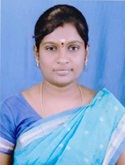
Dr.J. Nandhini
M.A.,M.Phil.,NET,SET.,Ph.D.
Assistant Professor
E-Mail nandhini-eng@sfrcollege.edu.in Area of Specialization Historical Fiction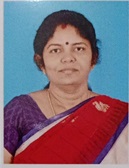
Dr. K.Mangaiyarkarasi
MA. MPhil., Ph.D
Assistant Professor
E-Mail mangaiyarkarasi-eng@sfrcollege.edu.in Area of Specialization Indian Writing in English(Fiction)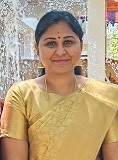
Dr.M.Sindhu
MA.,MPhil.,Ph.D.,
Assistant Professor
E-Mail sindhu-eng@sfcollege.edu.in Area of Specialization Diasporic Literature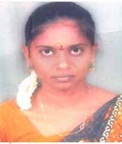
Dr. V. Kani Selvi
M.A., CGT., M.Phil.,
Assistant Professor
E-Mail kaniselvi-eng@sfrcollege.edu.in Area of Specialization Science Fiction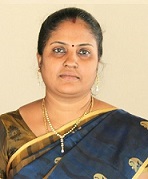
Dr.K.Ramajeyalakshmi
M.A., M.Phil.,Ph.D.,SET
Assistant Professor
E-Mail ramajeyalakshmi-eng@sfrcollege.edu.in Area of Specialization Indian Writing in English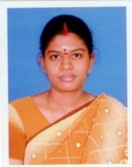
Mrs.N.Banumathi
M.A., M.Phil.,
Assistant Professor
E-Mail banumathi-eng@gmail.com Area of Specialization African American Literature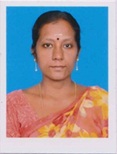
Dr. G.Umadevi
M.A., M.Phil., Ph.D
Assistant Professor
E-Mail umadevi-eng@sfrcollege.edu.in Area of Specialization Indian Writing in English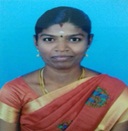
Mrs.D.Ponezhil
M.A., M.Phil.,
Assistant Professor
E-Mail ponezhil-eng@sfrcollege.edu.in Area of Specialization Indian Writing in EnglishDr.J.Kavitha
MA.,MPhil.,PGDELT.,Ph.D.,
Assistant Professor
E-Mail kavitha-eng@sfrcollege.edu.in Area of Specialization Popular Fiction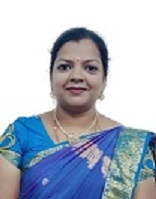
Dr. J. Yogavinotha
MA.,M.Phil.,Ph.D
Assistant Professor
E-Mail yogavinotha-eng@sfrcollege.edu.in Area of Specialization Comparative literature, African American Literature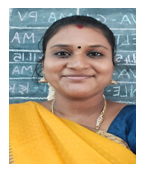
Dr.M.Akila
M.A., B.Ed., M.Phil., Ph.D.,
Assistant Professor
E-Mail akila-eng@sfrcollege.edu.in Area of Specialization British Literature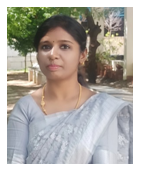
Mrs.G.Nivetha
M.A., NET.,
Assistant Professor
E-Mail nivetha-eng@sfrcollege.edu.in Area of Specialization Feminist Writing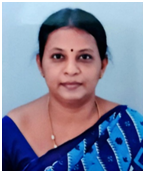
Mrs.J.Senthil Mithra
MA.,
Visiting Faculty
E-Mail senthilmithra-eng@sfrcollege.edu.in Area of Specialization Indian Writing in English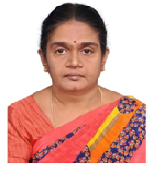
Mrs.G.Anandha Lakshmi
M.A.,NET.,
Assistant Professor
E-Mail anandhalakshmi-eng@sfrcollege.edu.in Area of Specialization Indian Writing in EnglishRemarkable Activities
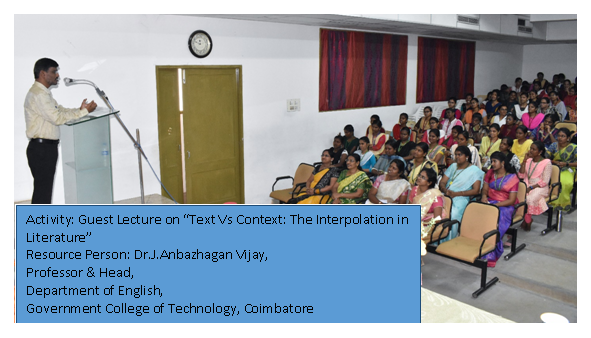
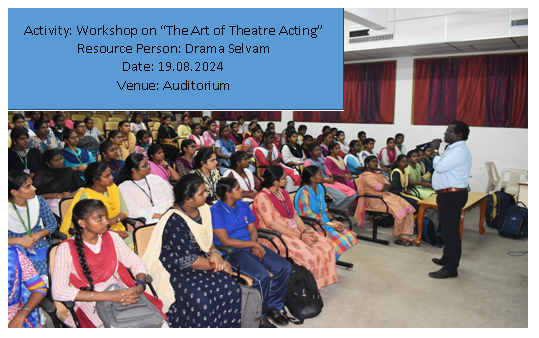
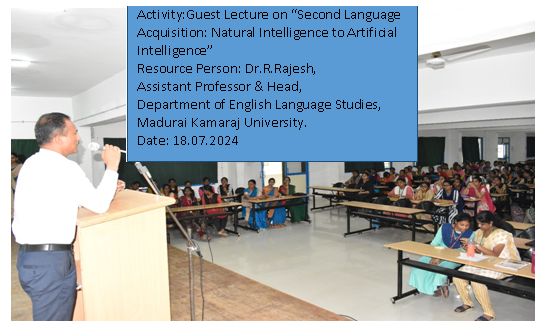
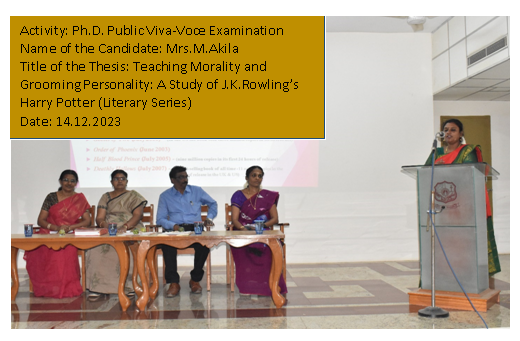
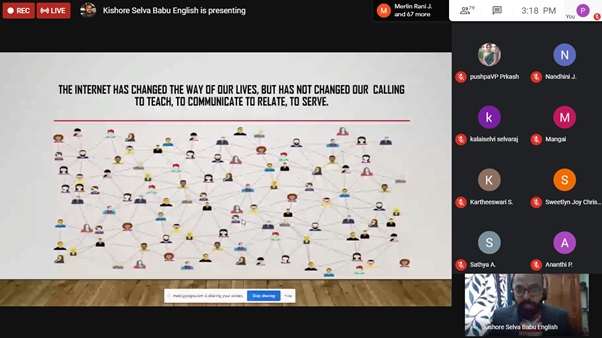
FDP on “Understanding Online Teaching” on 22.6.2020. Dr. Kishore Selva Babu, Assistant Professor of English, Christ University, Bangalore was the resource person.
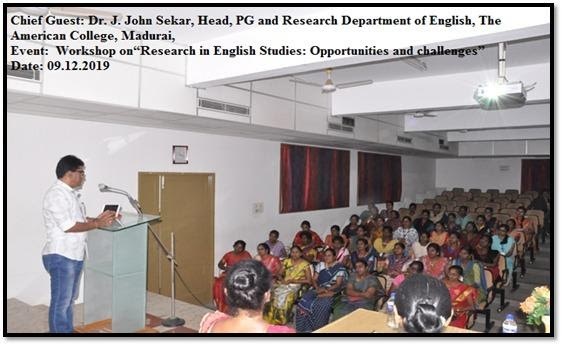
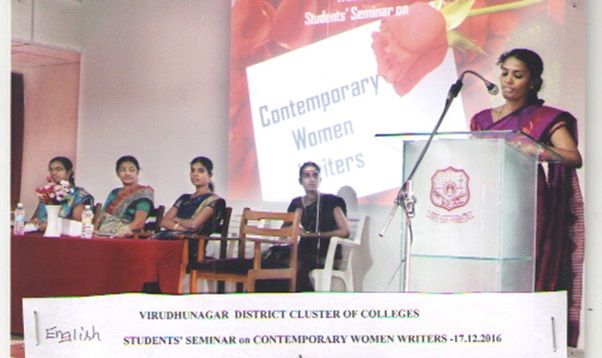
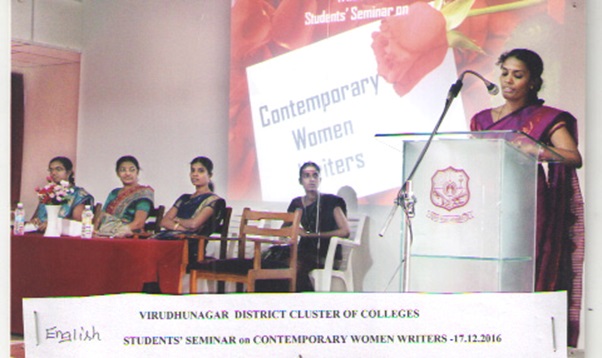
E2UGC Sponsored National Conference on Identity and Ethnicity in Contemporary Literature on 18.2.2015 & 19. 2.2015
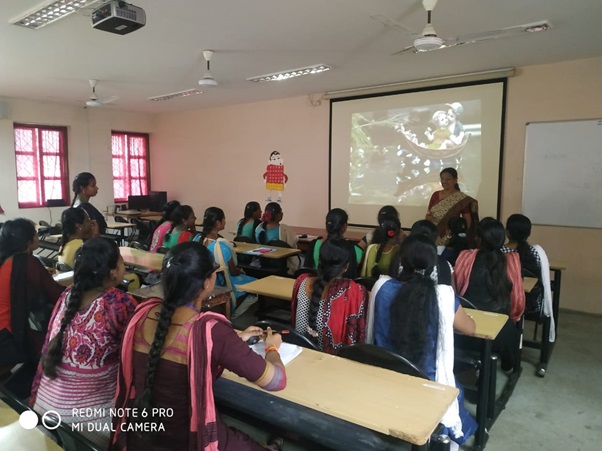
Language Lab
PG and Research Department of English
FOOTPRINTS OF THE DEPARTMENT
Serving more than five decades for the evolution of the college, the PG and Research Department of English has been playing a pivotal role in honing the communication skills of the students and in expanding the professional horizon of the students by enabling them to become college professors, school teachers, writers and various other professionals who require language skills. The department endeavours to shape the personality of the students by adopting various means.
BRIDGE COURSE
The department has taken a pilot project to conduct Bridge Course to train the students of different levels of competence and skills at the entry level. Bridge Course for all the freshers facilitates and eases the transition from Tamil medium in schools to English medium in College. It gives adequate exposure to communication in English for rural and semi-urban students. Bridge course is being conducted at the beginning of every academic year.
BUSINESS ENGLISH CERTIFICATION
Memorandum of Understanding has been signed with EBEK Language Laboratories Private Limited, Chennai and Business English Certification exams are conducted in Preliminary, Vantage and Higher levels. Being the Centre of BEC Examination the department has the honour of conducting the exams in the college premises. The course prepares the students to train up in LSRW skills and also enhances grammatical structures and vocabulary of English in a short time. Faculties from neighbouring colleges also participate in the certification exams.
LANGUAGE LAB
A learner-friendly Language Lab facilities the teaching of Spoken English and critical appreciation of Literature for Part II students and UG & PG English major students respectively.
Staff Achievements
Mrs.M.Sathya, Assistant Professor, Department of English presented her research paper at an International Conference held at Singapore
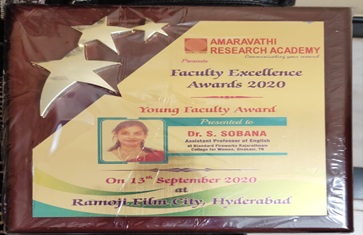
Dr.S.Sobana, Assistant Professor of English, received Young Faculty Award
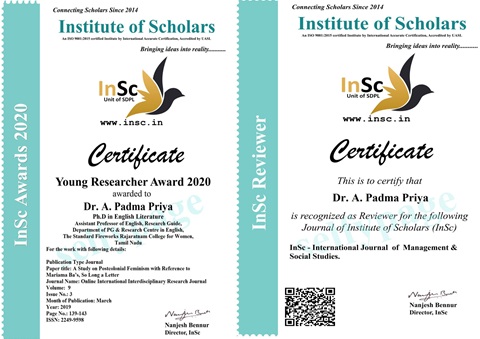
Dr.A.Padmapriya, Assistant Professor of English is a recipient of Young Researcher Award 2020 and is recognized as Reviewer for Selected Journals of Institute of Scholars
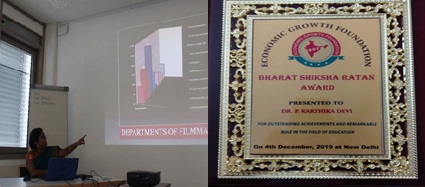
Dr.P.Karthika Devi, Assistant Professor of English presented her research paper at Germany and Malaysia. She has successfully completed a UGC sponsored Minor Research Project by receiving Rs.3,00,000. She is a recipient of Bharat Shiksha Ratan Award
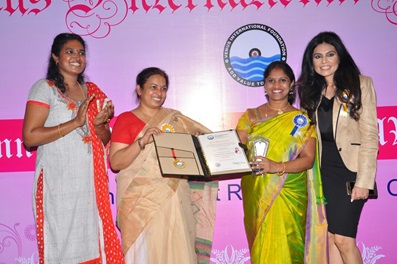
Dr.J.Sobhana Devi, Assistant Professor of English won the following awards; Cape Comorin Awards 2020, Outstanding Women in Language Studies and Best Teacher Award. She has presented her research Paper at Singapore and Sri Lanka. She has successfully completed a UGC sponsored Minor Research Project by receiving Rs.2,25,000
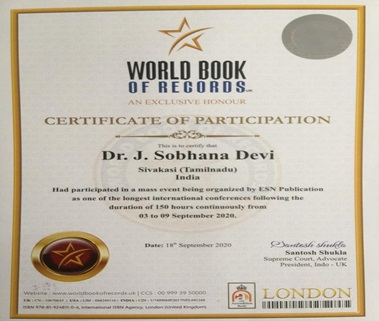
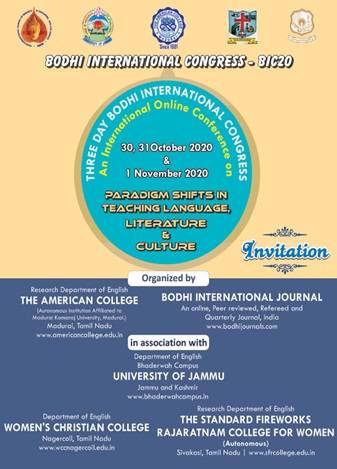
During the pandemic lockdown, the Department of English, collaborated with the department of English of the University of Jammu, The American College, Madurai, Women’s Christian College, Nagercoil, along with Bodhi International Congress and organised a Three Day Bodhi International Conference on the topic, Paradigm Shifts in Teaching Language, Literature and Culture
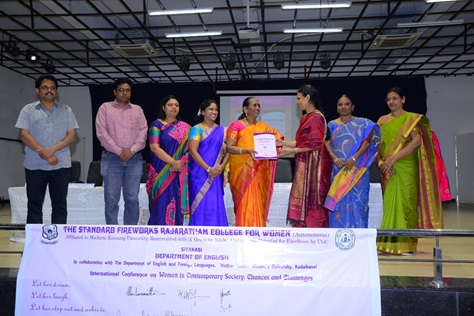
The Department of English in collaboration with Foreign Languages, Mother Teresa Women’s University, Kodaikanal organised an International Conference on “Women in Contemporary Society: Chances and Challenges” on 11th January 2019.
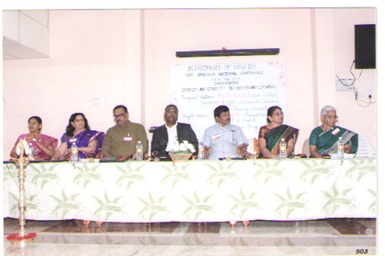
The Department of English organised a UGC sponsored National Conferences on “Identity and Ethnicity in Contemporary Literature” from 18th to 19th February 2015
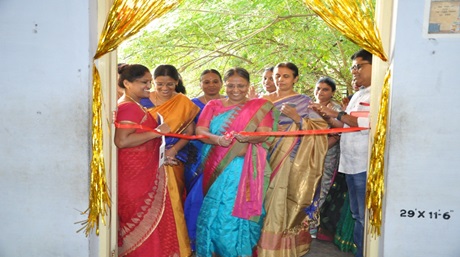
The English department became a full-fledged Research centre
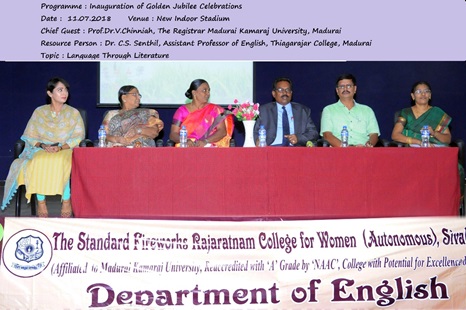
- Dr.K.Muthamil Selvi, Head and Associate Professor of English, has served as Board of Studies, University Nominee for TWO institutions from 2018-20.
- Dr.J.Sobhana Devi, Assistant Professor of English won the following awards; Cape Comorin Awards 2020, Outstanding Women in Language Studies and Best Teacher Award. She has presented her research Paper at Singapore and Sri Lanka. She has successfully completed a UGC sponsored Minor Research Project by receiving Rs.2,25,000.
- Dr.B.Sivapriya, Assistant Professor of English presented her research paper at Singapore and Sri Lanka.
- Dr. P.Prasanna Devi, Assistant Professor of English presented her research paper at Singapore. She has successfully completed a UGC sponsored Minor Research Project by receiving Rs.1,90,000.
- Dr.P.Karthika Devi, Assistant Professor of English presented her research paper at Germany and Malaysia. She has successfully completed a UGC sponsored Minor Research Project by receiving Rs.3,00,000. She is a recipient of Bharat Shiksha Ratan Award.
- Dr.A.Padmapriya, Assistant Professor of English is a recipient of Young Researcher Award 2020 and is recognized as Reviewer for Selected Journals of Institute of Scholars
- Dr.S.Sobana, Assistant Professor of English, received Young Faculty Award.
- Dr.V.C.Priyadarshini, Assistant Professor of English has served as a member of Board of Studies of Lady Doak College from 2017-2018.
- Mrs. K.Ramajeyalakshmi presented her research paper at Singapore.
- Mrs.V.Kaniselvi, is a recipient of BEST NSS Programme Officer. She has co-authored a book entitled, Easy Learning Computer Hardware, Operating Systems, E-Services (978-620-0-50277-3) in January 2020.
- Mrs. G.Umadevi is a recipient of Dr. Abdul Kalam Women Achiever Award.
DEPARTMENT’s ACHIEVEMENTS
- The department successfully celebrated its Golden Jubilee in the year 2019
- The English department became a full-fledged Research centre in the year 2019.
- Five Assistant Professors of this department are eligible Ph.D Research supervisors and they are currently guiding 16 scholars.
- The Department of English organised a UGC sponsored National Conferences on “Identity and Ethnicity in Contemporary Literature” from 18th to 19th February 2015.
- The Department of English in collaboration with Foreign Languages, Mother Teresa Women’s University, Kodaikanal organised an International Conference on “Women in Contemporary Society: Chances and Challenges” on 11th January 2019.
- The department has signed a Memorandum of Understanding with V.V.Vannaiaperumal College for Women, Virudhunagar for Staff and Student Exchange program.
- During the pandemic lockdown, the Department of English, collaborated with the department of English of the University of Jammu, The American College, Madurai, Women’s Christian College, Nagercoil, along with Bodhi International Congress and organised a Three Day Bodhi International Conference on the topic, Paradigm Shifts in Teaching Language, Literature and Culture.
Student Achievements
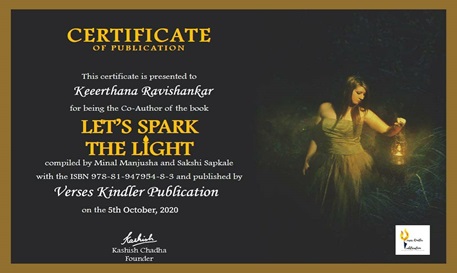
Ms.Keerthana Ravishankar, III B.A. English Regular (2020-21) has co-authored 7 books, entitled, Let’s Spark The Light, Blissful Breeze of Monsoons, The Winter Leten Rose, shades, Zindagi ek ehaas, The Roots, Teen Writers
- Ms.Keerthana Ravishankar, III B.A. English Regular (2020-21) has co-authored 7 books, entitled, Let’s Spark The Light, Blissful Breeze of Monsoons, The Winter Leten Rose, shades, Zindagi ek ehaas, The Roots, Teen Writers.
- Ms.D.Nivetha, an Alumnae cleared UGC- NET exam in the year 2018.
- Ms.R. Sivashankari , II B.A, English Regular won Second prize in an online Animation Contest conducted by the department of English, Madurai Kamaraj University.
- Ms.J.Ajai Rubeni, III B.A. English (Reg) won the First prize and Third prize in Painting and Pencil Sketch competition, respectively, in an online Animation Contest conducted by the department of English, Madurai Kamaraj University.
- Ms.R.Jayashree, III B.A.English Regular, won the Third prize in Photo story and Video Story in an online Animation Contest conducted by the department of English, Madurai Kamaraj University.
University Blues
The Following Students actively participated in sports activities and won prizes at the University level
2015-2016
| SI.No | Name | Major | Event |
|---|---|---|---|
| 1 | V.Divya | II B.A English | Basket Ball |
| 2 | M.Vasuki | II B.A English | Basket Ball |
| 3 | R.Srinithi | I M.A.English | Volley Ball |
| 4 | I.Kanaga Priya | I M.A.English | Volley Ball |
2016-2017
| SI.No | Name | Major | Event |
|---|---|---|---|
| 1 | V.Divya | II B.A English | Basket Ball |
| 2 | T.Bharathi | I M.A.English | Ball Badminton |
| 3 | R.Srinithi | II M.A.English | Volley Ball |
| 4 | I.Kanaga Priya | M.Phil.English | Volley Ball |
2017-2018
| SI.No | Name | Major | Event |
|---|---|---|---|
| 1 | V.Divya | I M.A English | Basket Ball |
| 2 | D.Visakavarshini | I B.A English | Volley Ball |
| 3 | T.Bharathi | II M.A.English | Ball Badminton |
Contact Us
Thiruthangal Road , Sivakasi - 626123 , Tamil Nadu , India
Telephone Number
+91 4562-220389 FAX Number
+91 4562-226695 Email ID
sfrc@sfrcollege.edu.in
